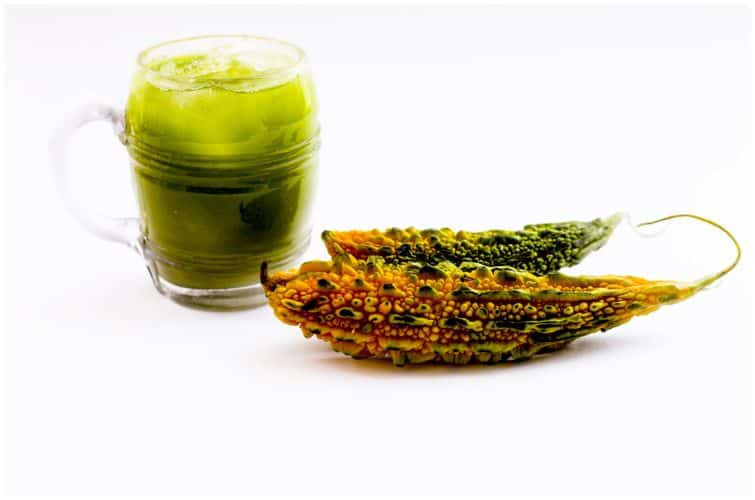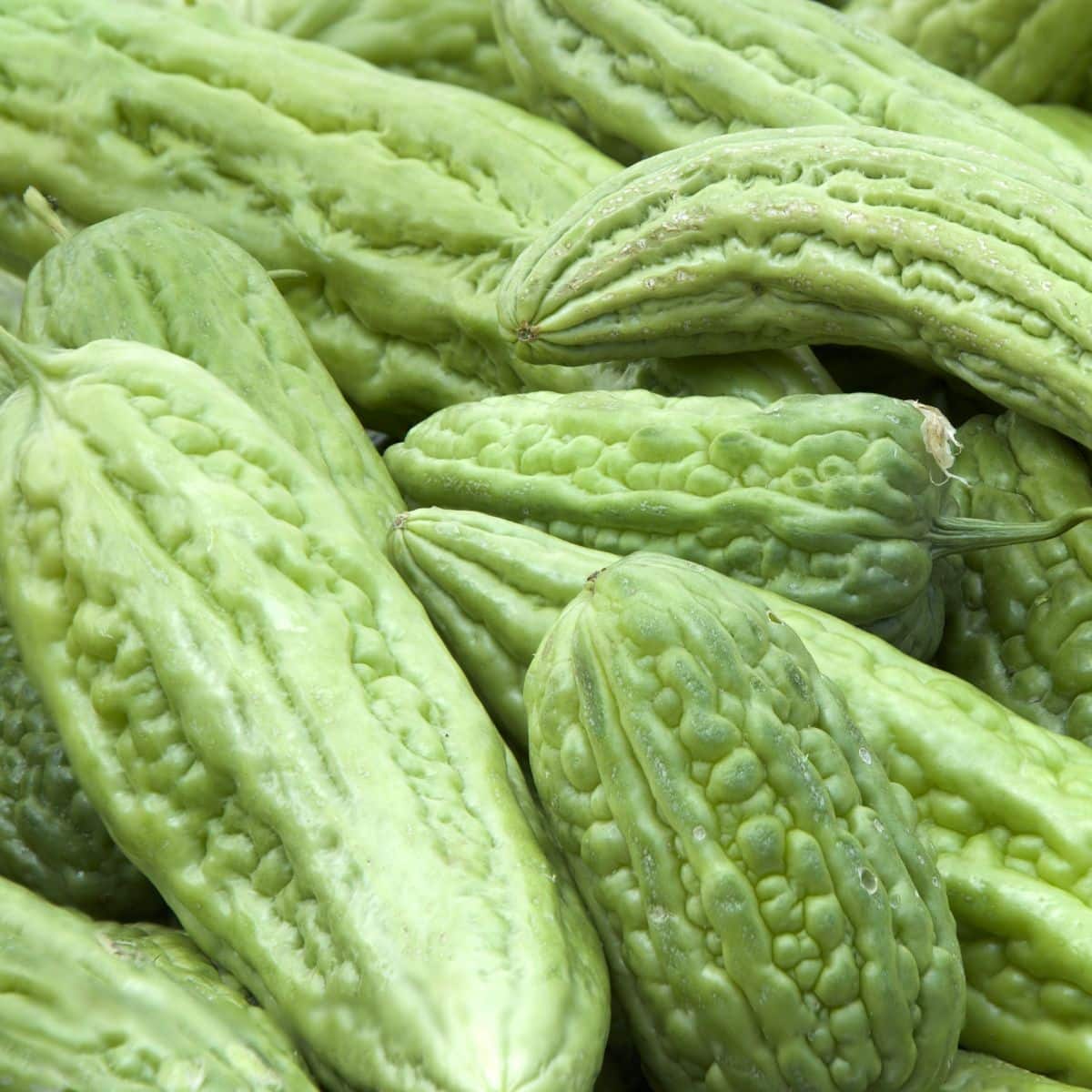What are the possible side effects of cerasee tea?
Introduction
Cerasee (scientific name – Momordica charantia) medicinal herb, also known as bitter melon, is a plant that is native to the Middle East, Africa, and the Mediterranean region.
It was introduced to Brazil by African slaves, and from there, bitter melon spread to the rest of Latin America and the West Indies.
The usual names for this plant are Bitter bush, Bitter gourd, Caprika, Karali, Karela, Balsam apple, Balsam pear, Paoka, Vegetable insulin, Mexicaine, Corrilla, Madian apple, and Achochilla.
This amazing tea made from leaves has a very bitter taste. Momordica charantia fruit is melon-shaped and yellow with red seeds on the inside, with a sweet taste.
The fruit (known as goyain Okinawa) is a significant ingredient in Okinawan cuisine (about 80 percent carbohydrates) and is increasingly used in mainland Japan.
It is popularly associated with Okinawan life expectancies being higher than the already long Japanese ones.
Because this plant is natural, the minerals, amino acids, and vitamins contained are easily absorbed by the digestive system, thereby allowing for greater efficacy and absorption.
Cerasee Tea (Bitter Melon Tea) – Health Benefits
Momordica charantia stem and leaves are commonly boiled or drawn into a tea and taken for a number of illnesses, including parasitic worms, hemorrhoids, infertility, hypertension, diabetes, glaucoma, abdominal pains, and detoxing the blood and body.
The herb contains nutrients like vitamins A, B1, B3, B9, and C, choline, lutein, calcium, iron, potassium, phosphorous, zinc, and dietary fiber.
Cancer
Studies at the University of Miami School of Medicine have found an element called guanylate cyclase (a lyase enzyme) inside the ripe fruit, which has the ability to inhibit the growth of cancer caused by chemicals and killed off cancer cells of the nerve tissue in just 48 hours.
Moreover, an extract of bitter melon fruit and seeds has been shown to help slow the growth of prostate and breast cancer as well. By stopping these cancers from spreading to other parts of the body, consuming this plant makes it easier to treat these cancers.
Skin health
Drinking bitter gourd tea promotes blood circulation, helping in nourishing the skin and improving its texture.
Furthermore, the tea can be used to get rid of scabies (a contagious skin infestation) and ringworm caused by fungal infections.
Other skin conditions like psoriasis and eczema can also be treated.
Antioxidant properties
In a 2008 study, researchers concluded that although tea made from the Momordica charantia fruit had a high amount of antioxidants overall, the tea made from the leaves of the bitter gourd plant had greater antioxidant activity.
The leaf is rich in a number of beneficial antioxidants, including catechin (phytochemical) and gallic acid, which helps to boost the immune system and prevent damage caused by free radicals.
ALSO READ: How to Pick a Juicy, Sweet and Ripe Watermelon From the Grocery Store
Type 2 diabetes
Diabetes mellitus is one of the most frequent disorders in developing and developed countries, and the disease is increasing rapidly in most parts of the world.
The latest research shows that this medicinal plant is an alternative therapy that has primarily been used for lowering blood glucose levels in individuals with type 2 diabetes.
The active constituents found in the plant are thought to exert hypoglycemic properties, namely momordenol, charantin (identified by Rao and Lolitkar in 1960), and momordicilin.
Four clinical trials found bitter gourd fruit, juice, and dried powder to have a moderate hypoglycemic effect.
These studies were small and were not randomized or double-blind.
In addition, this healing herb contains Gurmarin (a 35-residue polypeptide), a chemical compound that is believed to be similar to bovine insulin and has been demonstrated in clinical studies to achieve a strong sugar regulating effect by suppressing the neural responses to sweet taste stimuli.
Good for bones
Worldwide, osteoporosis causes more than 8.9 million fractures/per year, resulting in an osteoporotic fracture every three seconds.
This herb is rich in nutrients like vitamins A, C, calcium, and iron, which are easily absorbed by the system, strengthening the bones and thereby avoiding osteoporosis.
ALSO READ: How Can Poor Mental Health Affect Your Physical Health
Prevents heart disease
According to some animal studies, consumption of this caffeine-free tea aids in decreasing the LDL cholesterol (bad cholesterol), hence lessening the chances of heart attacks, strokes, and other heart diseases.
Additionally, in folk medicine, this tea has been usually used as an herbal remedy for hypertension.
Warnings and side effects of cerasee tea (bitter melon tea)
It is acknowledged that this herb should be taken for nine days and then take a break until further use is necessary. Excessive use of Momordica charantia may cause liver damage, so use it with caution!
Those with Glucose-6-phosphate dehydrogenase (G6PD) deficiency (which affects an estimated 420 million individuals in the world) should avoid taking bitter gourd tea since it might worsen some of the symptoms of favism, including fever, rapid pulse, headache, stomach pain, and anemia.
Moreover, the seed of bitter melon contains vicine (an alkaloid glycoside). Therefore, it can trigger symptoms of favism in susceptible individuals.
Also, the red arils of the seeds are reported to be toxic to children. Consuming too much bitter gourd or taking it with other glucose-lowering medications can produce the side effect of decreasing your blood sugar too much (hypoglycemia).
Pregnant mothers or those desiring to become pregnant must not consume the bitter melon fruit or as a tea.
ALSO READ: Conscious Nutrition or Mindful Eating
References http://www.ncbi.nlm.nih.gov/pubmed/3899464 https://bmjopen.bmj.com/content/2/6/e000648
- About the Author
- Latest Posts
Irina is a co-founder and author at AwakeningState.com, an online magazine launched in 2016 that aims to expand consciousness every day. Offering eye-opening articles on a range of topics, Irina strives to provide unique insights into personal growth, covering areas such as spiritual awakening, health, lifestyle, nature, and science.




